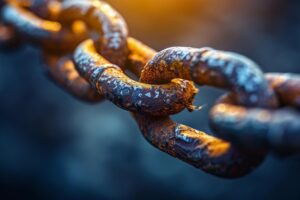Mortgage fraud is a serious issue with significant financial implications. It involves deceitful actions to mislead lenders and industry professionals. Fraud can occur at various stages of the mortgage process, from application to property appraisal.
Various schemes like property flipping and equity skimming are used to manipulate the lending process and gain illicitly. It is crucial to recognize the warning signs and consequences to combat this pervasive issue effectively.
Understanding Mortgage Fraud
Mortgage fraud involves deceptive actions to mislead lenders and industry professionals, impacting financial implications. It can occur during different stages of the mortgage process, using schemes like property flipping and equity skimming.
Types of Mortgage Fraud
- Fraud for Profit
- Fraud for Housing
- Common Fraud Schemes
Motivations Behind Mortgage Fraud
The motivations for engaging in mortgage fraud vary, from personal gain to maximizing profits on loan transactions. Borrowers, real estate agents, loan officers, and appraisers can all be involved in these deceitful actions.
Warning Signs and Consequences
Recognizing the warning signs of mortgage fraud is crucial, as the consequences can be severe, including legal penalties such as lengthy prison sentences and hefty fines.
Recognizing Mortgage Fraud
Recognizing mortgage fraud involves understanding the red flags that may indicate deceitful activities. By being aware of these warning signs, individuals and organizations can take proactive measures to protect themselves.
Red Flags for Mortgage Fraud
- Unsolicited offers for low-interest loans
- Pressure to sign documents quickly
- Requests for upfront fees before any services are provided
- Unwillingness to provide written documentation
Protecting Against Mortgage Fraud
To safeguard against mortgage fraud, seeking legal assistance, conducting thorough research, and due diligence are essential steps.
It is crucial to verify information and scrutinize all aspects of a transaction before proceeding.
Legal Assistance
- Consulting with a qualified attorney
- Reviewing legal documents carefully
- Seeking advice on potential risks and pitfalls
Research and Due Diligence
- Checking the credentials of involved parties
- Verifying property ownership and title history
- Examining financial documents for inconsistencies
Regulatory Measures and Investigations
Regulatory bodies and law enforcement agencies play a crucial role in monitoring and investigating mortgage fraud activities. By collaborating with industry organizations, these entities work towards identifying and prosecuting fraudulent schemes.
Combating Mortgage Fraud
Addressing mortgage fraud requires a collaborative effort involving various industry organizations. These entities play a crucial role in monitoring and investigating fraudulent activities to uphold the integrity of the mortgage lending process.
Role of Industry Organizations
- Collaboration with regulatory bodies
- Establishment of industry-wide standards
- Information sharing and best practices
Vigilance and Proactive Measures
- Implementing fraud detection tools
- Conducting regular audits and reviews
- Training staff on fraud awareness
Education and Awareness Initiatives
- Public awareness campaigns
- Training programs for consumers and industry professionals
- Partnerships with law enforcement for fraud prevention
.


















